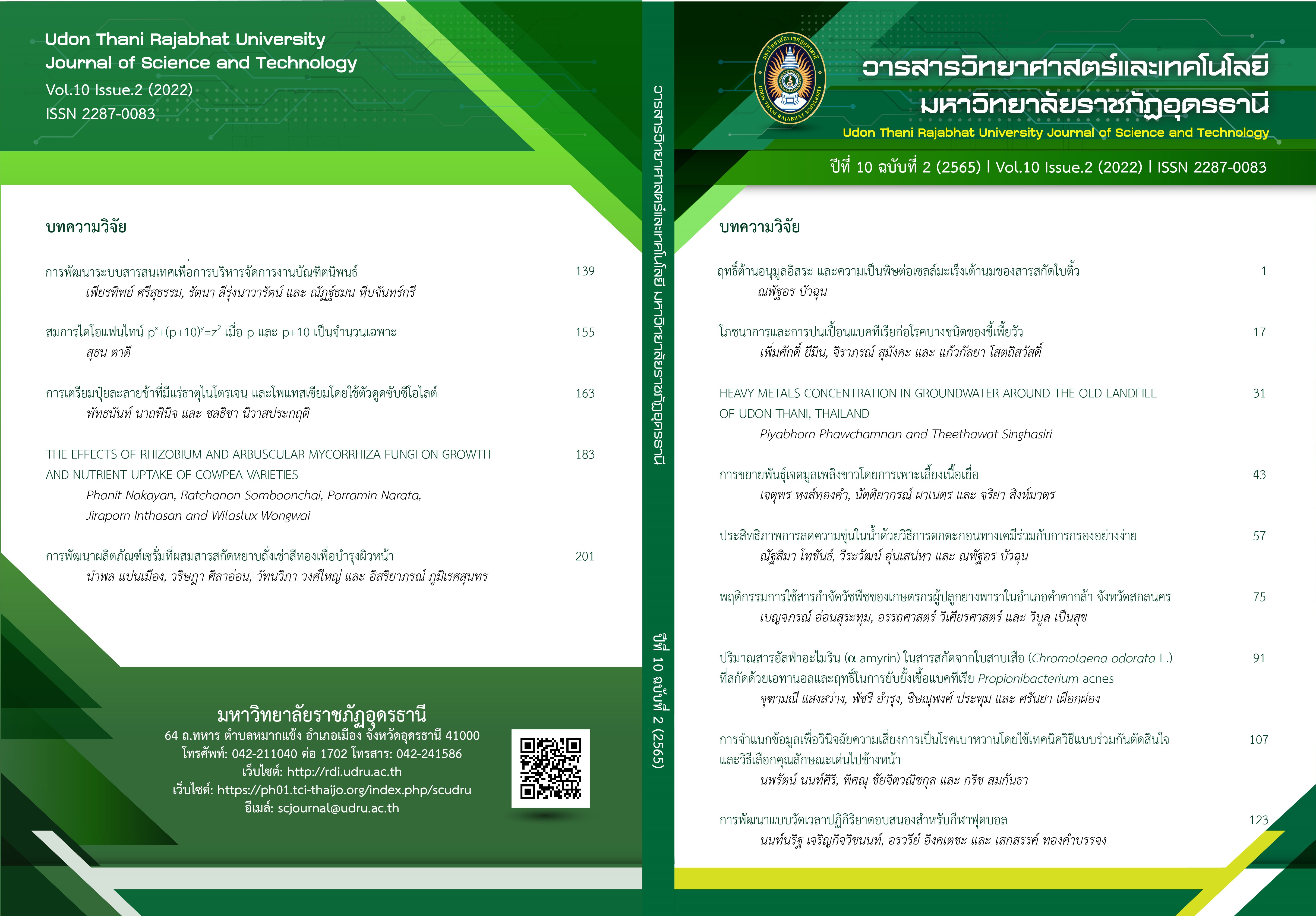สมการไดโอแฟนไทน์ p^x+(p+10)^y=z^2 เมื่อ p และ p+10 เป็นจำนวนเฉพาะ
Main Article Content
บทคัดย่อ
งานวิจัยนี้ศึกษาผลเฉลยที่เป็นจำนวนเต็มที่ไม่เป็นลบ ของสมการไดโอแฟนไทน์
เมื่อ
และ
เป็นจำนวนเฉพาะ และพบว่า ถ้า
เป็นจำนวนเต็มคู่ จะได้ว่าสมการดังกล่าวไม่มีผลเฉลยที่เป็นจำนวนเต็มที่ไม่เป็นลบ และถ้า
เป็นจำนวนเต็มคู่ จะได้ว่า สมการดังกล่าวมีผลเฉลยที่เป็นจำนวนเต็มที่ไม่เป็นลบเพียงสองผลเฉลยเท่านั้น คือ
Article Details
เอกสารอ้างอิง
Asthana, S. & Singh, M. M. (2017). On the Diophantine equation 3^x+13^y=z^2. International Journal of Pure and Applied Mathematics, 114(2), 301-304.
Bacani, J. B., & Rabago, J. F. T. (2015). The complete set of solutions of the Diophantine equation p^x+q^y=z^2 for twin primes p and q, International Journal of Pure and Applied Mathematics, 104(4), 517-521.
Burshtein, N. (2018a). The Diophantine equation p^x+(p+4)^y=z^2 when p>3 and p+4 are primes is insolvable in positive integers x,y,z. Annals of Pure and Applied Mathematics, 16(2), 283-286.
Burshtein, N. (2018b). Solutions of the Diophantine equation p^x+(p+6)^y=z^2 when p, p+6 are primes and x+y=2,3,4. Annals of Pure and Applied Mathematics, 17(1), 101-106.
Burshtein, N. (2019). All the solutions of the Diophantine equations p^x+p^y=z^2 and p^x-p^y=z^2 when p≥2 is prime. Annals of Pure and Applied Mathematics, 19(2), 111-119.
Dokchan, R., & Pakapongpun, A. (2021). On the Diophantine equation p^x+(p+20)^y=z^2 where p and p+20 are primes., International Journal of Mathematics and Computer Science, 16(1), 179-183.
Kumar, S., Gupta, D., & Kishan, H. (2019). On the solutions of exponential Diophantine equation p^x+(p+12)^y=z^2. International Transactions in Mathematical Sciences and Computers, 11(1), 1-19.
Mina, R. J. S. & Bacani, J. B. (2021). On the solutions of the Diophantine equation p^x+(p+4k)^y=z^2 for prime pairs p and p+4k. European Journal of Pure and Applied Mathematics, 14(2), 471-479.
Neres, F. (2018). On the solvability of the Diophantine equation p^x+(p+8)^y=z^2 when p>3 and p+8 are primes. Annals of Pure and Applied Mathematics, 18(1), 9-13.


